Whenever students complete ICC Academy’s Certified Trade Finance Professional (CTFP) or Global Trade Certificate (GTC) programmes we ask them what ambitions they have for their future trade finance careers.
The overwhelming response that comes back…..?
“I want to be Head of Trade Finance or a senior trade finance officer at a major bank”
But what do these jobs entail and how do you reach that level of seniority? To help you understand that better we will be speaking to trade finance professionals already in those roles to get their inside tips and advice.
Our latest interview is with Houssam Hoteit, Senior Trade Finance Specialist at the Royal Bank of Canada and previously Assistant Vice-President, Global Trade Finance Department at the Sumitomo Mitsui Banking Corporation. Houssam is also a CTFP graduate.
We spoke to Houssam about his trade finance career so far.
In this interview, you will learn:
- How Houssam went from an internship at Ernst & Young 14 years ago to a senior trade finance specialist at Canada’s biggest bank
- Houssam’s advice for those starting out in trade finance who want to stand out from the crowd
- How Houssam continues to learn through every deal he works on – even the simple ones
- The three key traits and skills Houssam looks for when hiring other trade finance professionals (clue, it isn’t just understanding the UCP600)
Thank you for your time Houssam!
ICC Academy (ICCA): What is your current position and what does that involve on a day-to-day basis?
Houssam Hoteit (HH): I am a senior trade finance specialist at the Royal Bank of Canada (RBC), Canada’s largest bank. RBC has been nominated for the last 9 years by Global Finance Magazine as the best trade finance bank in Canada. We think this is a significant achievement since the bank maintained it for 9 consecutive years.
My primary role is to work closely with top Canadian Corporates and try to help them better structure their finances when it comes to international financing. Whether these corporates are dealing with new markets, new suppliers, or new clients, I help them structure their trade finances to ensure they are well protected and enjoy the best access to cash flow.
ICCA: I noticed you started with an internship at Ernst & Young doing auditing which is quite different to what you do now. Can you describe the journey you have taken to reach your current position?
HH: I’ll start from the beginning. My father used to have his business in West Africa. He is not an English native speaker. When I was 14 years old, he used to rely on me to communicate with suppliers. Besides ordering new products, his communication with suppliers covered the logistic part such as “send an email to the supplier to make sure they send the bill of lading or arrange a telex release’.
As a teenager, I used to look at him very confused and try hard to better understand the logistics and the reasons behind his queries. But at that time, international trade and trade finance were nowhere near my mind, I didn’t have any clue what they were.
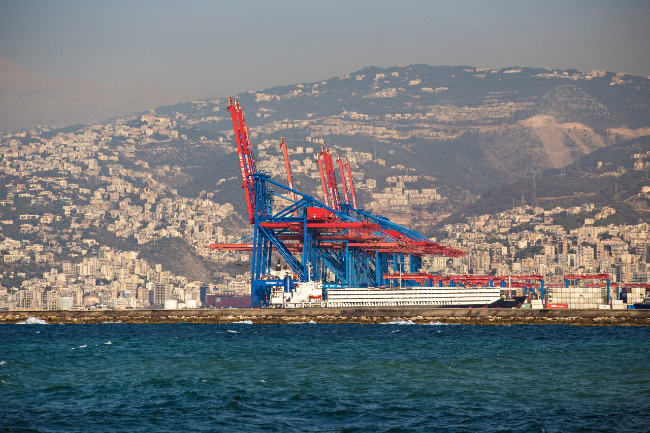
When I started my studies (back in Lebanon), audit was emerging as an exciting industry. Companies were recruiting auditors massively, and it was kind of a hot topic. I was lost if I should follow this path or something different, but then I was lucky to secure an internship at one of the Big4 (Ernst & Young).
However, when the internship finished, I realized that audit was not my fit. It did not suit my personality, my character; therefore, I decided to focus instead on banking and finance.
After I graduated, I started working in the credit department in one of the top Lebanese banks (BLOM Bank). From there, I got the opportunity to move to the United Arab Emirates to work for one of their subsidiaries as a corporate relationship manager.
A few years later, I got an opportunity to join Sumitomo Mitsui Banking Corporation (SMBC) as a credit analyst in their Global Trade Finance Department. Despite being flattered by the opportunity, I was initially very hesitant about this role. I was thinking, ‘why am I moving to trade finance? I am currently doing corporate banking. Why trade finance?’
I started with them doing credit reviews for large corporate and financial institutions in the Middle East. However, one year later, the regional head (my manager) gave me the opportunity to move to a different role and start managing the relationship and structuring deals. Our clients were the largest corporate and financial institutions in the region.
The new position was a perfect fit for me! I used all the knowledge I had from the credit side to apply it on the business side. This was was when my trade finance career really got started.
After spending almost 5 years at SMBC, my family decided to move to Canada, and I was lucky enough to join RBC as a senior trade finance specialist. RBC is a leader in the North American market, and I am learning every single day, and I’ve got the opportunity to work on large projects.
That is more-or-less my path. Each role was different. I learned the basics of corporate credit at BLOM. At SMBC, my trade finance journey started (working more on the financial institution side). and at RBC, I am working more closely with corporates. I am very grateful to all colleagues and managers I’ve worked with. They all added a lot to my journey and knowledge.
ICCA: You mentioned that you enjoy trade finance. That you enjoy sitting with people and structuring the deals. Can you tell us more about why you like that aspect?
HH: Sure, I grew up around international trade and the logistics of trade in my father’s business, and now I have the opportunity to sit with a corporate and try structuring trade finance deals with that experience in mind.
I really enjoy seeing that I can add value to any deal that I am working on. Besides, each client has a different level of trade finance knowledge: Some are very advanced, like commodity traders, whereas some may need more help. Each one of them will add value to your day.
What is interesting about trade finance is that each deal is different. There is no golden rule that you can apply across the board. Each client, each sector, each deal could have a different structure that you can apply.
As an example, you can work for years in trade finance but never be an expert in commodities financing; you may perfectly understand the corporate side of the business but not financial institutions’ side and risk.
So, when I say sitting with clients and structuring trade finance deals, it’s more like finding the opportunity and working with everyone worldwide to make this deal happen, especially when you are part of a global/regional bank.
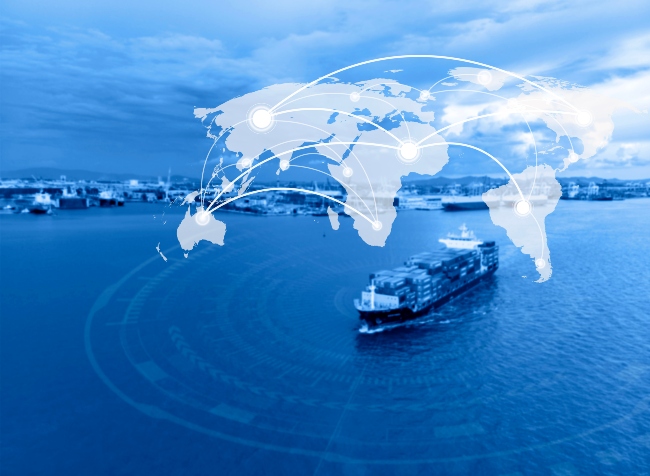
The great part about trade finance is that you can innovate – there may not be that many instruments, but you can manage them to achieve what you want.
ICCA: What skills or knowledge would you advise other trade finance professionals to focus?
HH: If you are starting your career in trade finance, I think you need to master the basics and understand the logistics side, such as the Incoterms® rules.
Without this knowledge and understanding, it is very challenging for you to grow. The ICC Academy offers a couple of good programmes in that respect. Trade finance is always a learning curve. Go with it. That’s the simple advice.
For people at a more senior level, my advice is to stay updated with the market. Keep reading about trade finance deals and follow what the market is dictating.
Daily, I allocate around 30 mins to read about the top public deals in the market; check what other multinational banks are doing. It is a small community, so we must learn from each other. Sometimes, I even call contacts in my network and have a chat to understand what they are seeing.
You won’t find everything in a book.
ICCA: Have there been any experiences that you feel have been transformative or important for your career?
HH: The way I see it is that you learn from every deal you work on. No trade finance professional will tell you that he/she knows everything about trade finance. No way. Each one of us is learning on a daily basis.
Many factors can impact your trade finance deal (regulation, legislation, interest rate, banks’ appetite, compliance, etc.). Even when deals look super simple, you will still learn. Personally, each deal I’ve worked on has been a learning path for me.
ICCA: While we are talking about your learning path it seems a good opportunity to discuss the Certified Trade Finance Professional (CTFP) qualification that you completed with the ICC Academy. Are there any aspects of the course that were particularly beneficial for you?
HH: Of course. I recommend the CTFP highly.
I have been working in the trade finance field for over eight years. I can tell you that I’ve learned a lot from most of the courses I’ve taken under the CTFP.
Previously, whenever I had the opportunity to sit and discuss with a counterparty, he/she can tell that I have a high level of knowledge after speaking with me. However, I didn’t have an official designation or qualification to introduce me to the community quickly.
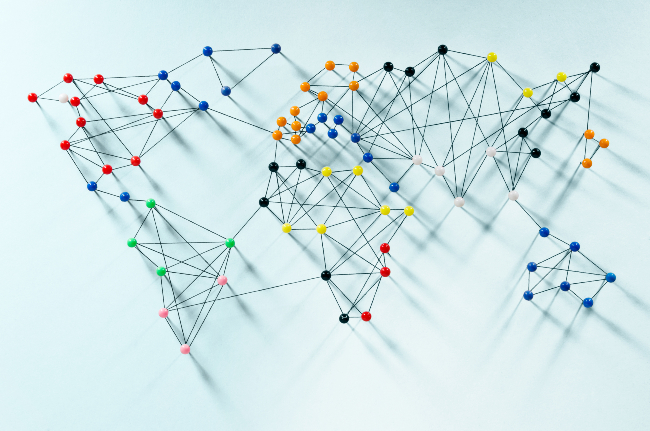
I see the CTFP as a perfect way for any trade finance person to (a) be part of a global community and (b) have a certification that highlights your expertise and automatically puts you at a certain level that is respected in the industry.
ICCA: You mentioned that you really enjoy sitting down with clients to structure deals. Is that your favourite part of the job?
HH: Yes, one of the best parts.
I am usually considered a people-person. I get very excited when I start working on a specific project.
My golden strategy is to put myself in the counter-party situation and try to understand the reason behind each request/need.
At the end of the day, all institutions that I’ve worked for don’t prioritize the financial reward over the counter-party satisfaction or at least the value added that we brought to the table.
Another aspect that I enjoy is the educational part. I like helping to pass on my knowledge to others. At RBC, I have the chance to present at many conferences or workshops to several counter-parties and share the international trade and trade finance path.
For example, we have helped many clients start their international business. So, what’s better than seeing one of your clients growing his business toward new markets? It is a moment that makes me (and the institution I am working for) very proud as we added value to their operations.
ICCA: And what is the most challenging part of your role?
HH: Time and bureaucracy.
Time: Many deals are usually time-sensitive. We need to be sure that you close it on time and documents are delivered with no delay to ensure that your client is not negatively impacted.
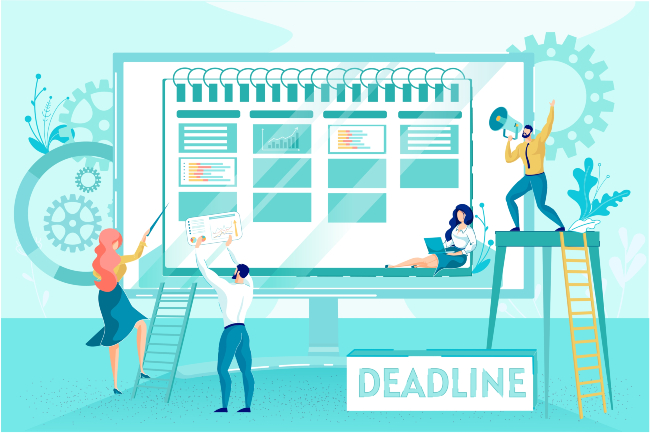
Bureaucracy: While team-work is always a great part of the role, you usually deal with multiple counterparties who could be internal such as Credit, Risk, Legal, Trade Operations, etc.. or even external such as other financial institutions.
All these partners need to sit together to find common ground. Reaching an agreement can sometimes be challenging and we may face pressure from a deadline.
ICCA: What advice would you give to anyone starting out in trade finance? Does anything spring to mind?
HH: As a newcomer to the trade finance field, first, you should take your time to learn the basics and master the Incoterms® rules.
Then, you should understand the full supply chain (from the time an order is placed till sold). It will help you understand requests placed by clients and how you could help them.
My next piece of advice is to start thinking outside the box. Newcomers should have a plan on how they can start impacting the industry and changing it for the better.
In 20 years, a very low percentage of companies will do letters of credit, for example. Trade finance has not changed for over five decades. We are still dealing with papers. The industry should change as we can’t cope with the growth of the international business.
We have all a responsibility to make this change and help take the industry to another level. We need to catch up with other industries in terms of technology adoption.
I am closely following the news regarding the recent developments in blockchain and how a couple of multinational banks were able to run some transactions on it. This is a perfect example of how we could drive and make an impact. Trade finance needs to be digitized for sure.
The new officers in the industry should be more tech-savvy and think outside the box. However, you can’t do it if you don’t know the basics and logistics.
ICCA: When you recruit people for your team are there any traits or skills that you look for?
HH:
I think there are three things a trade finance officer should have:
- Entrepreneurial spirit: You don’t need to be an entrepreneur, but you should have one’s mindset. For every deal you are working on, you need to put yourself in the counter party’s shoes.
- Be able to understand and evaluate risk – credit, FX, documentary, etc. If you don’t know how to evaluate risk, you don’t know how to assess your client’s position.
- Be a team player – you will work with many partners on each deal, both internal and external.
Personally, I don’t recommend recruiters focus on recruiting someone who just knows the rules (such as UCP600, ISP98, URDG, etc.). Indeed, they are essential, but eventually, the person will learn them.
Some of my colleagues in the industry may not agree, but I believe that the above traits/skills that I’ve mentioned are much harder to teach (if you could).
